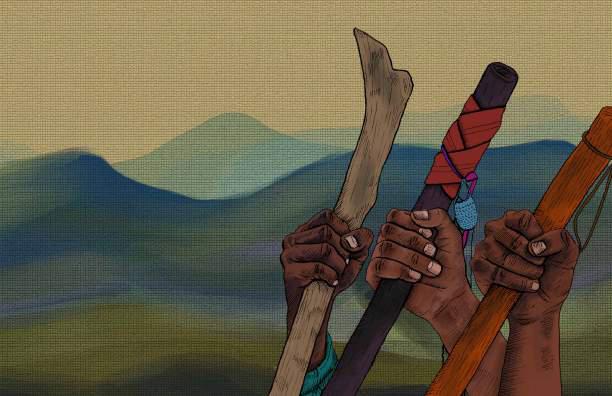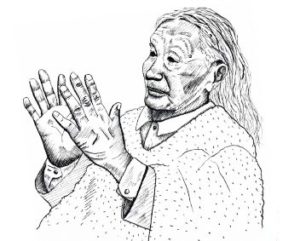
Guide on indigenous, Afro-descendant and peasant women guards in Cauca published with the support of CAPAZ

Cover of the guide. Universidad del Cauca
We are pleased to present the guide entitled: “Guardias indígenas, afrodescendientes, campesinas. Trayectos y desafíos, departamento del Cauca” (Indigenous, Afro-descendant and peasant women Guards. Trajectories and challenges in the department of Cauca), a publication by authors Axel Rojas and Vanessa Useche, supported by CAPAZ and the Vice-Chancellor’s Office for Research at Universidad del Cauca.
Committed to the memory of political history and the defense of territories, the authors aim to reconstruct the recent history of the indigenous, peasant and Afro-descendant guards in the department of Cauca. To do so, the publication develops three themes: strategy of territorial defence: indigenous, peasant and Afro-descendant political history; indigenous, Afro-descendant and peasant women guards: territorial defence and peacebuilding, and challenges: building autonomy and territorial peace in the post-conflict. The text includes infographics such as timelines, illustrations and photographs.
Research findings in the context of German-Colombian cooperation

Illustration fomento the guide. Universidad del Cauca
The guide was published in October 2019 in Popayan and is the result of two research projects. The first project, supported by CAPAZ, was developed in 2018, and was called: “Strengthening Autonomy or the State? The differential recognition of self-protection guards in the peace agreement and their cooperation in the territory in the framework of the post-agreement”.
This study was conducted in collaboration with Professor Axel Rojas and research assistant Vanessa Useche (Universidad del Cauca); María Cárdenas (Justus Liebig University Giessen) and Sergio Coronado (Otto-Suhr-Institut, Freie Universität Berlin, Centro de Investigación y Educación Popular – CINEP).
Professor Rojas and the anthropologist Useche then carried out the second project, called: “The indigenous, peasant and maroon guards in the department of Cauca. Strategies for building autonomy in the post-conflict”. This second study was financed by the Vice-Chancellorship of Research at Universidad del Cauca.
The guide we mention here brings to light the many challenges faced by rural populations and the transformations they have undergone in recent decades to meet them. It includes efforts to build projects aimed at exercising autonomy and control of territories and building peace in the post-agreement, in which the conflict, far from disappearing, has transformed and become fragmented.
Read the guide here (in Spanish)
Rojas, A. and Useche, V. Guardias indígenas, afrodescendientes, campesinas. Trayectos y desafíos, departamento del Cauca. Universidad del Cauca. Editorial Samava, Popayán: October 2019. 40 p.
(Text NW023-2020, Carlos Andrés García, Claudia Maya. English version: Tiziana Laudato)



